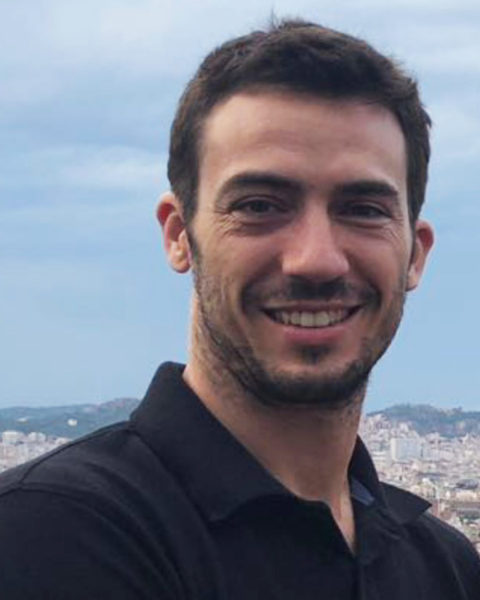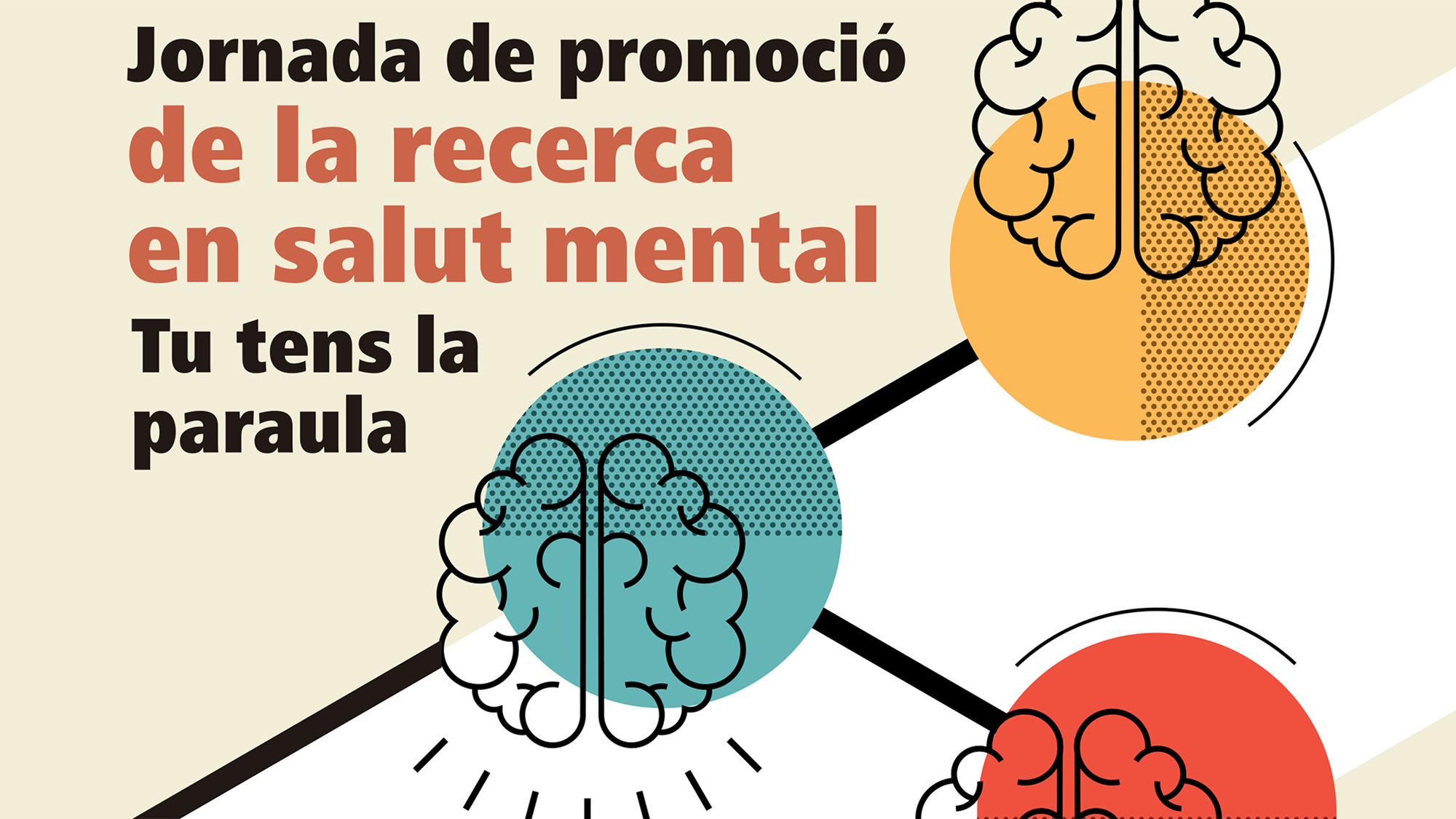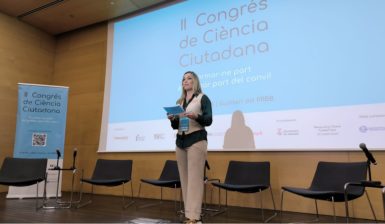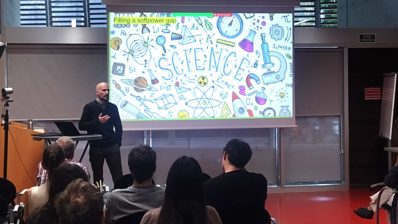October 10 is World Mental Health Day. This important part of our well-being has been affected by the changes in lifestyle imposed by the COVID-19 pandemic over the last year and a half. Spain is the fourth country in the world in which mental health has worsened the most: more than half of the Spanish population say that their emotional state and mental health have worsened since the beginning of the pandemic.
For this reason, Estanis Mur, a researcher in the Mental Health Research Group at the Hospital del Mar Medical Research Institute (IMIM) and an assistant doctor in the Psychiatry Service of the Hospital del Mar, invites us to a “Conference for mental health promotion” this Friday, October 8 at 10 am.
The “Mental health promotion conference”, open to all interested people, will take place on Friday 8 October at 10 am.
According to the specialist, “the loss of the routine generates a lot of pathology.” And this year we have lost habits that helped us stay healthy. Not seeing friends or not going to the gym has led to an increase of anxiety and mood disorders in the general population and the sociability routines of patients with more severe mental disorders have also been lost”.
Breaking the stigma
While it is true that this past year personalities such as Simone Biles or Íñigo Errejón have helped to highlight the importance of mental health and the taboos that surround it, there is still much to do in order to break a “stigma that will not be lost just like that”, explains Mur. “Without a long term intervention aimed at the entire population, from the oldest to the youngest, this will not change. As long as we continue to use the word crazy lightly, or hear news of someone making a fuss and justifying this in the media by saying they had a mental disorder, we will be perpetuating the stigma. And this is very hard for people with severe mental illness. As is the case for those with mild disorders, perceiving that having anxiety or depression is the result of their mental weakness.
“As long as we keep using the work “crazy” lightly, we will be perpetuating the stigma”
Estanis Mur (IMIM-Hospital del Mar)
Only time will tell what the impact of the pandemic will be on mental health. But depending on the aftermath of the crisis, “in a while we may see an increase in suicides. And no matter how hard we try to follow the Suicide Risk Code to improve the situation, research teaches us that, in the vast majority of cases, these suicidal ideas stem from social problems. And without strong policies to change problematic situations, it will be difficult to reduce these figures”, explains Mur.
Participatory research
Research is key to identify causes and treatments of diseases and ultimately for improving the lives of people affected by mental health disorders. But, according to Mur, “in this country most professionals either work in healthcare or do research. It’s difficult to do both, and we should be able to do both things, so that the research does not lose sight of the needs of patients”.
As a result of his concern to be on both sides and of his realisation that users who participated in research projects did not know the results of their tests or even the final result of the project, in 2018 Estanis Mur organized the first mental health promotion day. An event that would not have been possible without the hours that his thesis director, Dr. Francesc Colom “offered him”
This was four years ago. And, despite having to stop because of the pandemic, this year marks the third edition of this event, in a hybrid format and with more user participation than ever before. And spetially, with the same will that motivated Estanis on the first day: “to give back to the patients the effort and knowledge that they have helped to build“.
We spoke to Estanis Mur, from the organizing committee of this event, to find out more.

Who is this day for the promotion of mental health aimed at?
The day is designed for users of the mental health network, their families and the general population. Although it is also generating a lot of interest among health professionals and, for now, we could already have a full room only with this group!
How can people participate?
One part of the event consists of “unidirectional” talks, and another part is more participatory. First of all, we ask all attendees to fill in a questionnaire before and after the event to see if the perception and interest of the participants in the research studies changes. And after the talks we do a participatory activity in which we do a fictitious research study together.
You are facing the third year of this mental health promotion day. What has changed since the first edition?
Lots of things! The first event was the result of an idea from the CSMA team in Santa Coloma. The second year we collected feedback and users began to actively participate. One of the presentations was even made by a user who had participated in a research project in which a scale for assessing abuse was designed based on the testimony of abused women. And this year we wanted to give maximum protagonism to the users. Both them and their relatives and the associations have worked hand in hand with the staff of the Hospital del Mar on the organizing committee. We made three groups to work on the contents, logistics and dissemination of the event, and in the three working groups there were people from all stakeholders. So I think this year we have managed to make it a day from users to users.
Personally, what would you highlight about this event?
I have confirmed what moved me to organize the first edition: that users really appreciate having information. I am doing my thesis on lithium and bipolar disorder, and one of the things we are doing is a book on the most frequently asked questions when being treated with lithium. And I always tell those who have helped me: when I finish the book, I will give it to you as a gift! In fact, some have already read an early version to review it.
I’ve also been surprised to find that as medical professionals we often dare to decide for users and not ask them if they want to participate in our studies, assuming they don’t want to. And it turns out that when you ask them to participate, most users say yes! And this is a problem of the prejudice we professionals have, rather than the reluctance of users to participate.
How do you see the future of the event?
I would love to think that this can become an annual day. Even though it’s a lot of work, it’s well worth it!
This conference is just one example of what can be achieved when users are involved in mental health research. But the ultimate goal is for the hospital to have an evaluation committee made up of users and family members. “The pandemic has delayed us, but we hope to be able to start it soon. Ideally, from now on, all the projects would go through this committee so that the research would be a common project of medical staff and users”, concludes Mur.
You can join the event by sending an email to promocio.investigacio@psmar.cat or follow it through the Hospital del Mar YouTube channel .







